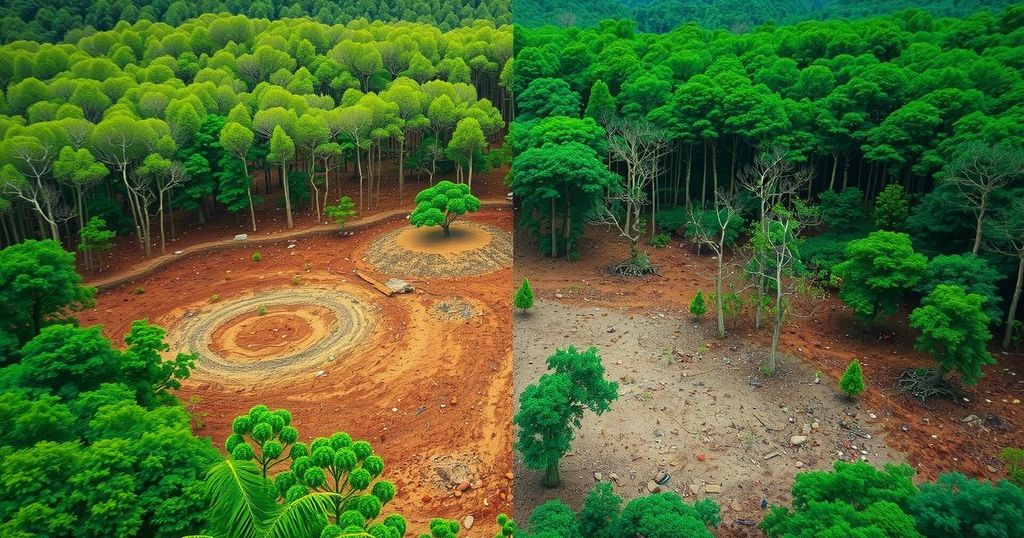Mark Carney, as Liberal leader and potential Prime Minister, is criticized for hypocrisy regarding his environmental commitments due to Brookfield Asset Management’s sale of deforestation-linked farms in Brazil. Investigations reveal significant CO2 emissions from these actions, contradicting Carney’s advocacy for corporate responsibility in climate matters. While Brookfield defends its decisions, critics highlight a significant disparity between Carney’s rhetoric and actions.
Mark Carney, the newly appointed Liberal leader and potential Prime Minister, faces scrutiny concerning his environmental track record amid claims of hypocrisy in his climate change advocacy. A BBC article from previous years raises doubts regarding his tenure at Brookfield Asset Management, where an investigation revealed the sale of Brazilian farms linked to deforestation. Carney’s financial interests in Brookfield are estimated to be substantial, drawing attention to a discrepancy between his public statements and corporate actions.
An investigation by Global Witness, mentioned by the BBC, found that Brookfield subsidiaries deforested approximately 9,000 hectares in Brazil’s Cerrado savanna from 2012 to 2021. This deforestation resulted in the conversion of land into soybean farms, contributing to the release of around 600,000 tonnes of CO2, equating to emissions from 1.2 million flights from London to New York. The Cerrado ecosystem plays a vital role in limiting global warming, underscoring the environmental implications of such actions.
Carney, who joined Brookfield in 2020 and became chair of its asset management division in 2022, has publicly championed decarbonization initiatives and net zero targets. He established the Glasgow Financial Alliance for Net Zero (GFANZ) in 2021 and consistently advocated for companies to take responsibility for carbon-intensive assets by managing their phase-outs rather than divesting them. This stance has been reiterated at major forums such as COP27 and during discussions in the UK Parliament.
Brookfield defended its land sales, asserting that the decision predated Carney’s involvement and was necessary as a fund neared its closure, requiring returns for investors. The company has recognized the challenges associated with profitable reforestation, yet claimed it is collaborating with GFANZ to find solutions. Critics, including Global Witness’s Veronica Oakeshott, contend that Brookfield should have pursued reforestation instead, highlighting the gap between Carney’s environmental rhetoric and the firm’s actions.
In conclusion, Mark Carney’s environmental advocacy faces significant challenges, particularly in light of his association with Brookfield Asset Management and the controversial sale of deforested farms in Brazil. This situation raises questions about the genuineness of his commitment to climate issues, while critics emphasize the need for corporations to align their practices with environmental responsibilities. The ongoing dialogue surrounding corporate accountability in climate change is crucial as the global community strives towards net-zero goals.
Original Source: www.westernstandard.news




